The Hellenic Statistical Authority (ELSTAT) announced the indicators on Living Arrangements and Conditions of Children in Separated and Blended Families, on the basis of the available data of the 2021 Survey on Income and Living Conditions of Households (SILC), with reference income period the previous calendar year, 2020. The reference period regarding these indicators is the year when the survey is conducted, i.e., the year 2021.
According to the results of the survey, 94.2% of children under the age of 18 live with both parents, 4.7% only with their mother, 0.9% only with their father and 0.2% without their parents. This situation is not significantly different in the poor and non-poor population.
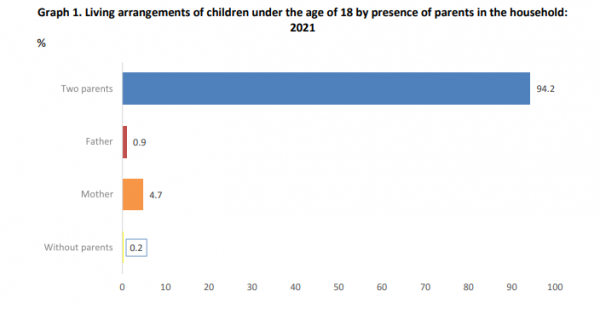
Observation of the data by age shows that 98.2% of children aged 0-5 years live with both parents.
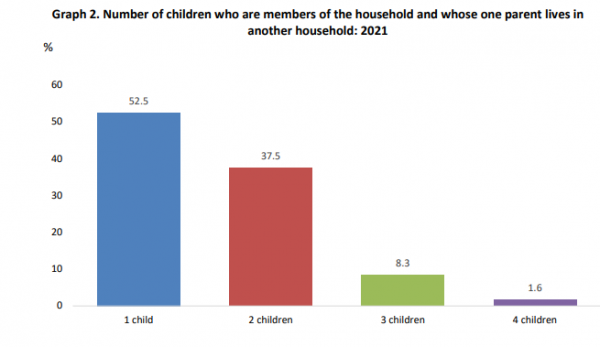
According to the survey results, regarding children aged 12-17 years who live with one parent, 7.0% live with the mother and 1.7% with the father.
87.2% of children have a bedroom, either in exclusive use or shared with other siblings. In contrast, 6.9% do not have one, due to financial difficulties.
As regards the frequency of spending actively time with their children, it is observed that the majority of parents spend several hours a day with their child. More specifically, 79.7% spend several hours a day and 18.6% once a day.
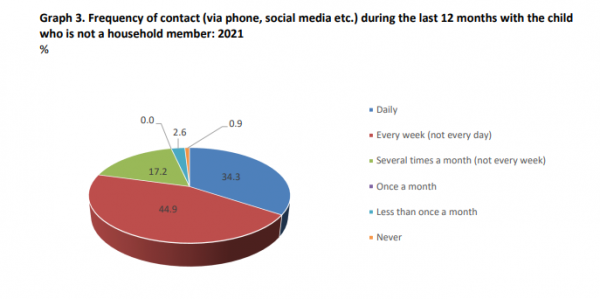
The analysis of the data on children living with one parent shows that 52.5% of these children live in a household with one child, 37.5% live in a household with two children, 8.3% in a household with three children, and 1.6% in a household with four children.
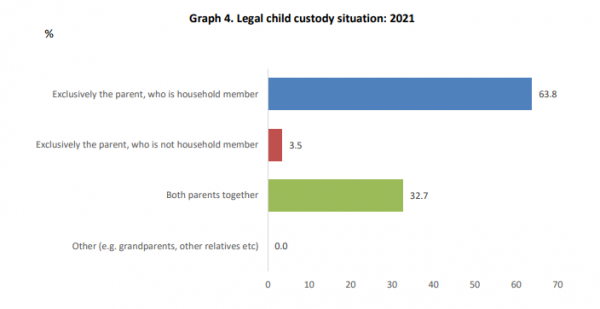
Regarding children aged 0-17, it is observed that:
- Of the children who do not live in the surveyed household but live with one parent in another household, 60.1% of them live in a household with one child and 39.9% in a household with two children.
- Of the children living with one parent in the surveyed household, 60.2% spend the night there, during a typical month, every day of the month, while 4.7% of these children spend less than ten days a month .
- 34.3% of parents who have a child who lives in another household communicate with their child daily via phone, social networks and other means of non-physical presence, while 0.9% never.
- 63.8% of the children, from separated and mixed families, have a parent responsible for custody who is a member of the household, 32.7% both parents (joint custody), while 3.5% have a parent who is not a member of the household.
- 94.3% of parents (household members) who have children living in the same household, state that there is nothing preventing them from spending more time with their children. On the contrary, parents (household members) who have children who also live in the household, and who do not spend more time with their children, state work as the main reason (5.5%).
- As for the parents (household members) who have children who do not live in the surveyed household, 40.2% of parents state that the main reason for not spending time with their children is work and 34.1% the distance, while only 14.2% say that nothing prevents them from spending more time with their children.
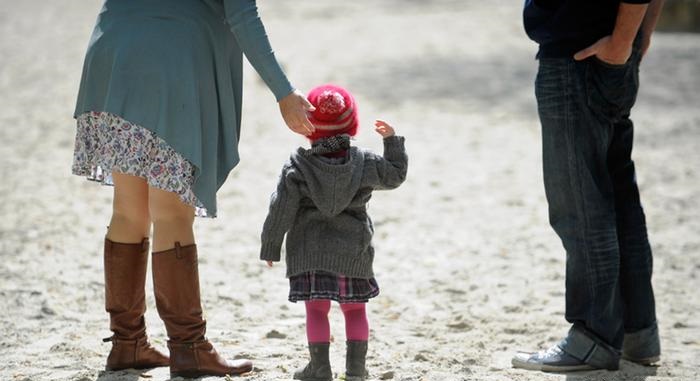


















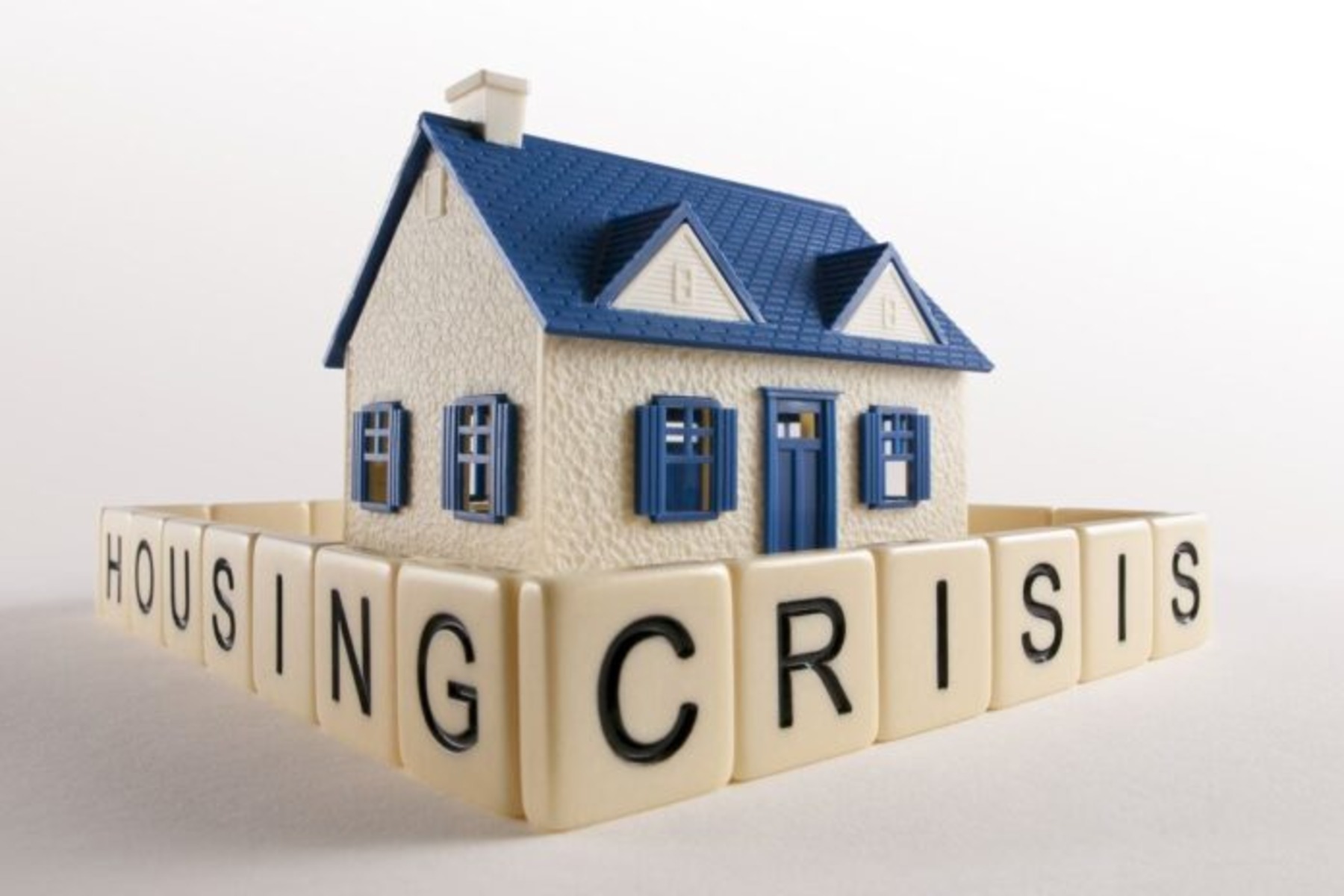










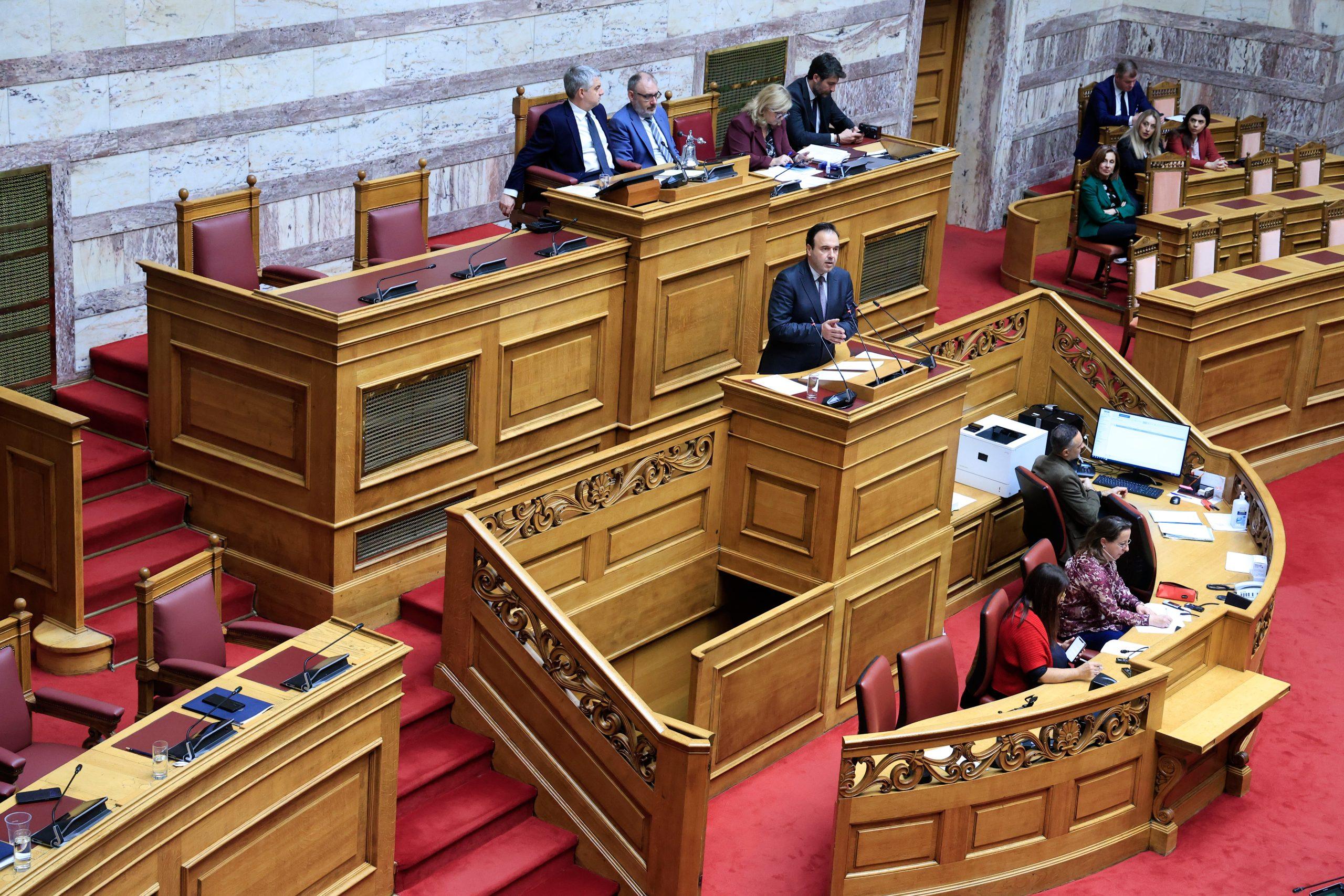







![Συντάξεις: Την Παρασκευή ξεκινά η καταβολή τους – Τα νέα ποσά [παραδείγματα]](https://www.ot.gr/wp-content/uploads/2025/11/euros-atm-scaled.jpg)
